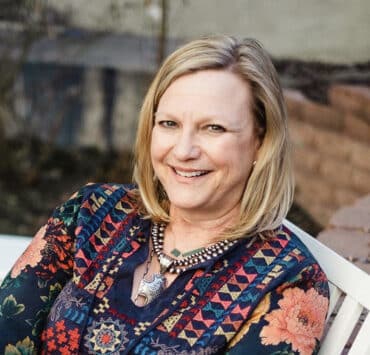|
Getting your Trinity Audio player ready... |
Ajmere Dale has held many different roles, but there is one thing that ties them all together: a track record of setting the stage for explosive growth at leading-edge companies.
Dale originally studied electrical engineering and got into the automotive industry, but then switched to global accounting and found his way to Silicon Valley. He spent four years at Calypso Technology, seven at SolarCity, and has now been at Block (the multinational technology company behind Square) for more than six years.
None of his roles, however, have been about maintaining the course. Dale’s primary focus has always been on innovation and expansion.
Dale, who grew up in the UK and came to the US over twenty-three years ago, left engineering for accounting because he wanted to understand the inner workings of business. That curiosity led him to finish a joint business and electrical/electronic engineering master’s degree in his home country before starting his new career with Ernst & Young. Soon, he was auditing companies that were looking to go public and reviewing their offering memoranda.
“A board seat isn’t just me, but also my network sitting at the table and helping provide advice and guide a company.”
Ajmere Dale
By 2000, Dale was ready to venture into industry, where he has stayed for the past two decades. “My forte lies in scaling a team that can support the growth of disruptive companies,” he says, adding that he’s been part of organizations that are changing the status quo in clean tech, biotech, and fintech. He thrives as a part of “scrappy start-ups” that think differently and challenge how commerce is conducted.
These experiences have prepared Dale to represent shareholders and help guide a company as part of its board of directors. “I bring clarity of thought to any team because I know that you can’t do everything at once,” he says. “I’ve learned to see and act upon what is the most compelling and impactful.”
Dale has helped companies find their way through hard times. He’s served as a corporate controller during recessions and even tried to take a company public during the financial crisis. He’s seen CEOs and other leaders make good choices, and he’s also witnessed several leaders make mistakes. That experience, Dale says, has taught him to be vocal and bring balance to his approach.
In 2016, Dale took his current position as chief accounting officer when he joined Block, then known as Square. It was once a small—if one can say that about such a dynamic brand—company known for an innovative payment system (a small square credit card reader that was compatible with mobile hardware devices like phones and tablets). Twitter Cofounder Jack Dorsey founded the company with Jim McKelvey in 2009, and it went public in 2015. Over the years, it has acquired other services like Weebly, Tidal, and Afterpay.
Today, Dale once again finds himself setting the stage for continued growth as he onboards new employees and leads the accounting department. He’s focused on ways to further leverage automation—but is also focused also on maintaining the human touch as he leads global and hybrid teams.
“I bring clarity of thought to any team because I know that you can’t do everything at once. I’ve learned to see and act upon what is the most compelling and impactful.”
Ajmere Dale
Dale’s role has expanded along with the company as he’s refined the tools, systems, and processes necessary to help Block move into new areas and thrive. He’s also been part of several complex merger and acquisition (M&A) deals, including the one that brought Afterpay, a public company listed on the Australian stock exchange, to the Block family of companies in early 2022. What has Dale learned from that and other major M&A projects? The importance of flexibility. “Whatever plans you thought you had in a year might get derailed or refocused because opportunities arise,” he says.
Opportunities are there to be seized, and each one brings something new not only to leaders but to every member of the team. Dale says he finds great joy in empowering others and watching them rise within the organization. People on his teams are given the chance to be vocal and “bring what they have to offer to shape the organization.”
At this stage in his career, with decades of experience at different types of companies and in different industries, Dale knows that he has a lot to offer as he looks to help shape and guide corporate strategy from the boardroom. He also brings something else to the table—his contacts. “A board seat isn’t just me, but also my network sitting at the table and helping provide advice and guide a company,” he notes.
For now, Dale remains focused on future. He doesn’t know exactly what’s next, but he stands ready to tackle whatever new challenges come his way.
Thoughts from Guest Editor Michelle Collins
A builder, Ajmere is an ideal board member for rapidly growing businesses, or even large companies that want to grow new business lines within the company or adapt new ideas into existing platforms. The ability to scale companies—which is usually dictated by the market—at a rapid pace is an exceptional skill. Finance and accounting are also big pluses for board members at dynamic businesses: managing growth in a controlled, systematic manner is essential for public companies.
Ajmere’s experience with IPOs, recessions, and disruption is unique and differentiates him from other candidates. It would appear Ajmere can tackle nearly any problem. His biggest challenge might be following the boardroom rule of “noses in, fingers out”—in other words, oversee thoroughly but let management do their work.
Finally, Ajmere is a self-described networker, and that can be a valuable asset to boards that are seeking top talent both for the board and the company. Ajmere could be positioned as an attractive resource for talent.

